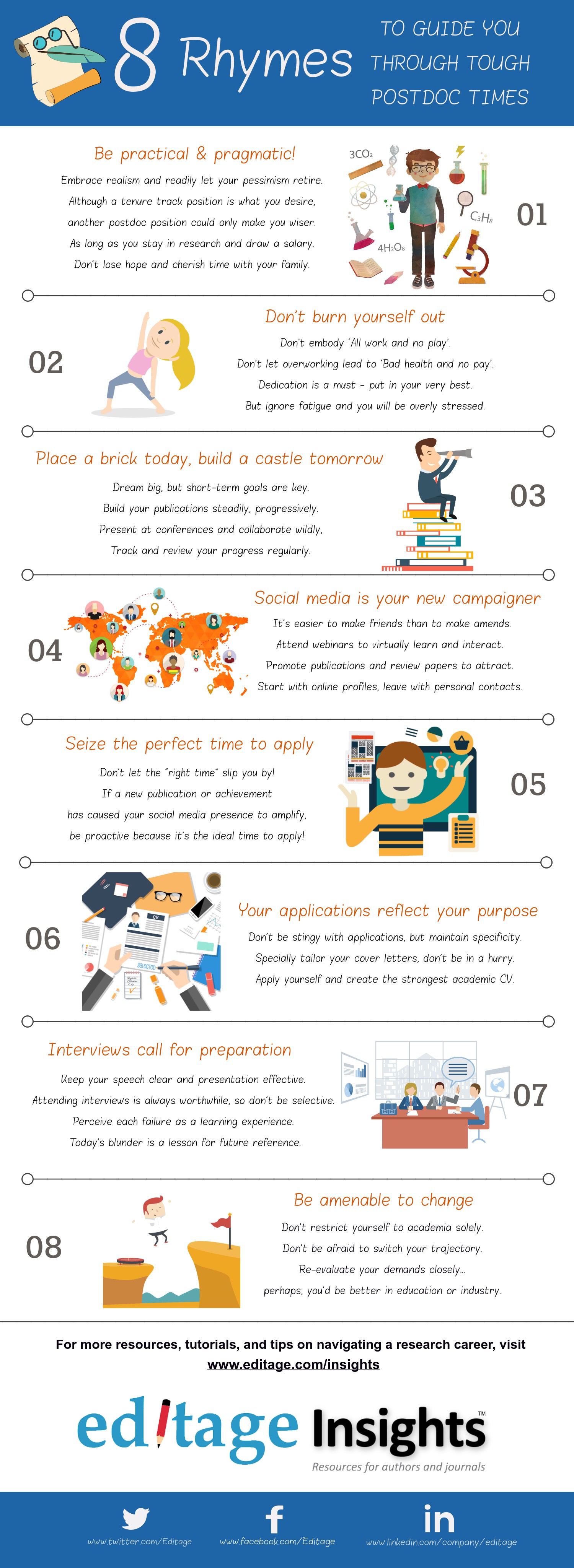7 Must-read tips for postdocs on how to choose a mentor/PI

The postdoctoral period is the springboard for an early career researcher before plunging into the independent scientific career. With a relatively small number of jobs available to a big cohort of researchers, the current academic research landscape is thriving on fierce competition. Perhaps more than ever, finding the right mentor is crucial in culminating the postdoctoral period into a rewarding career move as well as a satisfying learning experience.
A previous post discussed the challenges postdocs face and how mentors can help them succeed. This article will guide you on how you can make an informed choice before accepting a position in any lab because the first step to ensuring a successful career as a postdoc begins with the important step of selecting your PI.
Starting the process of searching for a postdoctoral position about a year before your graduation will give you enough time to do the research before shortlisting the mentors you want to work with. During this period, some of the factors that should be considered for choosing the PIs are:
1. Select the research area of your interest: Selecting the research field that motivates and the research topics that excites you are perhaps the most important things while searching for the prospective PIs. Reviewing the previous publication records of the prospective mentors and discussing the potential research projects with them will give you a better understanding of the research trends of the labs and whether your research interest compliments the research interest of the PI.
2. Study the potential PI’s research output: For progressing in the academic career, the publication is the most important tangible outcome. Studying the publication track record of the prospective PIs in terms of the number and quality appears early in the checklist of PI searching process. In addition, talking to the current and former postdocs of the lab as well as the mentor herself regarding the likelihood of securing first-author publications can also prove useful. This can be even more pertinent if the PI is planning to put you, the new post-doc, in an ongoing project.
3. Identify the funding situation of the lab: The current research establishment completely rests on funding. The certainty of the fund can make huge difference in the quality as well as the overall experience of the research during the post-doctoral contract period. You, as the future post-doc, should make every effort to identify how stable the funding situation is in the PI’s lab. A clear communication with the PI and the students working in that very lab will provide important insights into the actual scenario.
4. Find out about the lab’s research environment: Working with a group of friendly people who share the similar work ethics and style adds immense value to the everyday experience of research. Understanding whether the PI’s working and mentoring style nurture a congenial working environment is a very important aspect during choosing the mentor. Again, approaches like personal communication with the prospective PI, the current students and the postdocs, visiting the laboratory (if possible), going through the website of the lab, reading a blog written by the PI can help in understanding the research environment.
5. Discern the personality of the mentor: Communicativeness and open-mindedness are two characteristics frequently seen in great mentors. Generally, people who communicate their research well are more likely to attract more grants and establish a better interpersonal relationship with the coworkers. Also, an open-minded PI probably will encourage free thinking and the new ideas of yours. This will certainly contribute to a satisfying mentor-mentee relationship.
6. Get a picture of the overall mentorship: Apart from the tangible targets like publications and conference proceedings, a rewarding postdoc period also depends on several intangible aspects that are often difficult to assess beforehand but contribute significantly to your future as an independent investigator. Traits like mentoring the fresh postdocs on work ethics, career progression, laboratory management, budgeting, networking, teaching, and ability to acquiring peer-reviewed research funding are critical elements for a successful academic career. Talking to the past and present members of the lab can help assessing the chance of experiencing an ideal mentorship from the prospective PI.
7. Consider your personal career goals and preferences: While an open dialogue can help in collecting the essential facts before choosing the correct mentor, it is also realistic to understand that each PI-postdoc relationship is unique. Apart from collecting the facts, a period of self-reflection is necessary. For example: introspecting on what do you aspire out of the postdoc-mentor relationship, whether the prospective mentor can support and guide you in the development of your own scientific goals, and whether you can contribute to the vision of the PI should also be parts of your decision-making process.
Ultimately, although hierarchy is real and pressure of securing a good postdoctoral position is immense, the field of academics is also characterized by the core values like knowledge-transmission, collaboration, and intellectual satisfaction. If the search for the ideal mentor contributes to and is fueled by these values, it is very likely that the process will culminate into a successful relationship with your future PIs.
If you have any tips on choosing a mentor or would like to share your personal experience, please share them in the comments section below.
For some insightful resources on related topics, you may refer to:
Series: What next? Career navigation advice for PhDs/postdocs
Series: The American experience for foreign postdocs
For a more light-hearted read, you can check this fun infographic and also download it (download link at the end):
Postdoc rhymes_Editage Insights_0.pdf
Published on: Jan 11, 2018
Comments
You're looking to give wings to your academic career and publication journey. We like that!
Why don't we give you complete access! Create a free account and get unlimited access to all resources & a vibrant researcher community.

Subscribe to Career Growth














